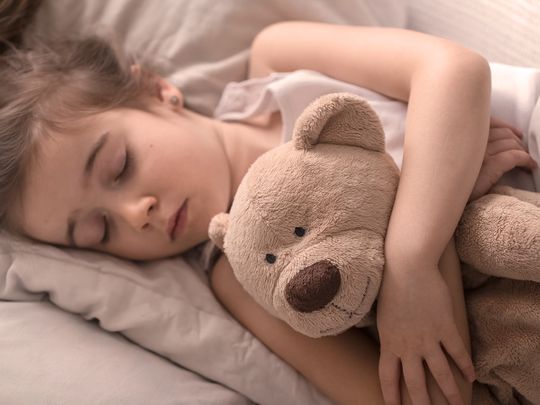

The number of children in affected by sleep disorders in the UAE is on the rise say experts at the London Sleep Centre in Dubai.
According to a study published in the Middle East Current Psychiatry journal, around a third (33.6%) of those aged four to 12 have a sleep related disorder which, if left untreated, can have a negative effect on learning and development.
“It’s important to identify and treat sleep disorders from an early age,” says Dr Steven Olmos, a specialist in Dental Sleep Medicine & Craniofacial Pain. “Kids who don’t sleep well can experience a reduced oxygen flow to the brain that disrupts restorative sleep – something that’s critical for brain development. In turn, this creates problems in areas of the brain that control the ability of toddlers and children to be attentive, manage behaviour and regulate emotions. The result is often increased hyperactivity.”
- Among the sleep disorders that can affect young children is Obstructive Sleep Apnoea (OSA). “This is a condition that causes the throat or upper airway to collapse, preventing oxygen from going through the lungs and causing shallow breathing or breathing pauses,” says Dr Olmos. “It can happen at any age, but is most common in children aged three to seven.”
- Craniofacial pain (chronic facial, neck or head pain), which most commonly affects adults, can also be present in kids from an early age. “It may be milder or simply seem milder as, unlike adult onset conditions, young children know no difference and assume pain and difficulties with functioning are normal,” says Dr Olmos.
- Headache is another common sleep saboteur. “Up to 82% of adolescents report having a headache before the age of 15 and migraines experienced in the pediatric population are just as disabling as those experienced by adults,” says Dr Olmos. “Children diagnosed with migraine are 8.25 times more likely to have a sleep breathing disorder while youngsters diagnosed with chronic tension-type headaches are 15.23 times more likely to have a sleep breathing disorder.”
Sleep disorders in kids are typically difficult to diagnose but the best way to be on the lookout is to pay close attention to how your children snooze.
“If you notice any shallow breathing or pauses in breathing while your child is asleep or they are experiencing jaw pain, headaches or even difficulty in normal mouth functions such as jaw pain or difficulty chewing or swallowing consult a paediatrician and, if possible, ask for a referral to a sleep specialist,” advises Dr Olmos.
Read more: